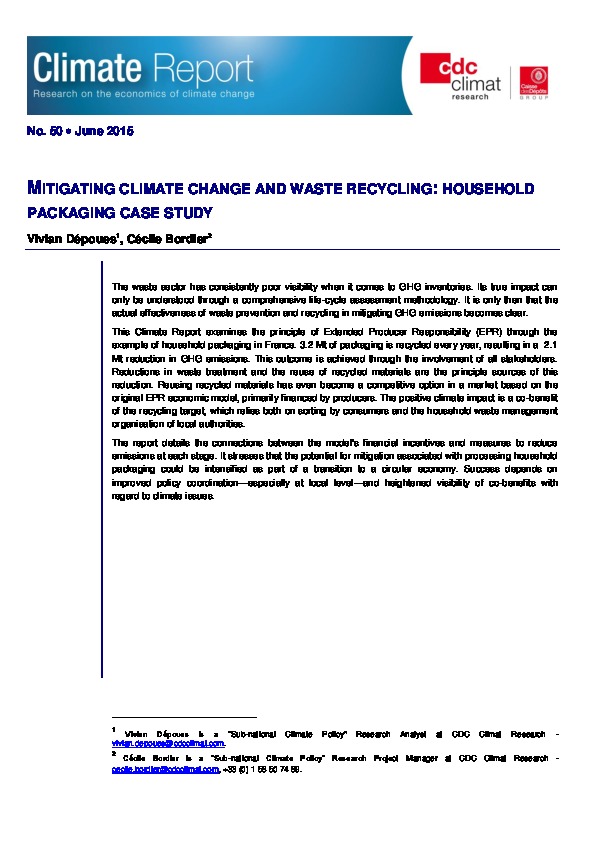Climate Report n° 50 « Mitigating climate change and waste recycling: household packaging case study »
• The waste sector has consistently poor visibility when it comes to GHG inventories. Its true impact can only be understood through a comprehensive life-cycle assessment methodology. It is only then that the actual effectiveness of waste prevention and recycling in mitigating GHG emissions becomes clear.
• This Climate Report examines the principle of Extended Producer Responsibility (EPR) through the example of household packaging in France. 3.2 Mt of packaging is recycled every year, resulting in a 2.1 Mt reduction in GHG emissions. This outcome is achieved through the involvement of all stakeholders. Reductions in waste treatment and the reuse of recycled materials are the principle sources of this reduction. Reusing recycled materials has even become a competitive option in a market based on the original EPR economic model, primarily financed by producers. The positive climate impact is a co-benefit of the recycling target, which relies both on sorting by consumers and the household waste management organization of local authorities
• The report details the connections between the model’s financial incentives and measures to reduce emissions at each stage. It stresses that the potential for mitigation associated with processing household packaging could be intensified as part of a transition to a circular economy. Success depends on improved policy coordination—especially at local level—and heightened visibility of co-benefits with regard to climate issues.

